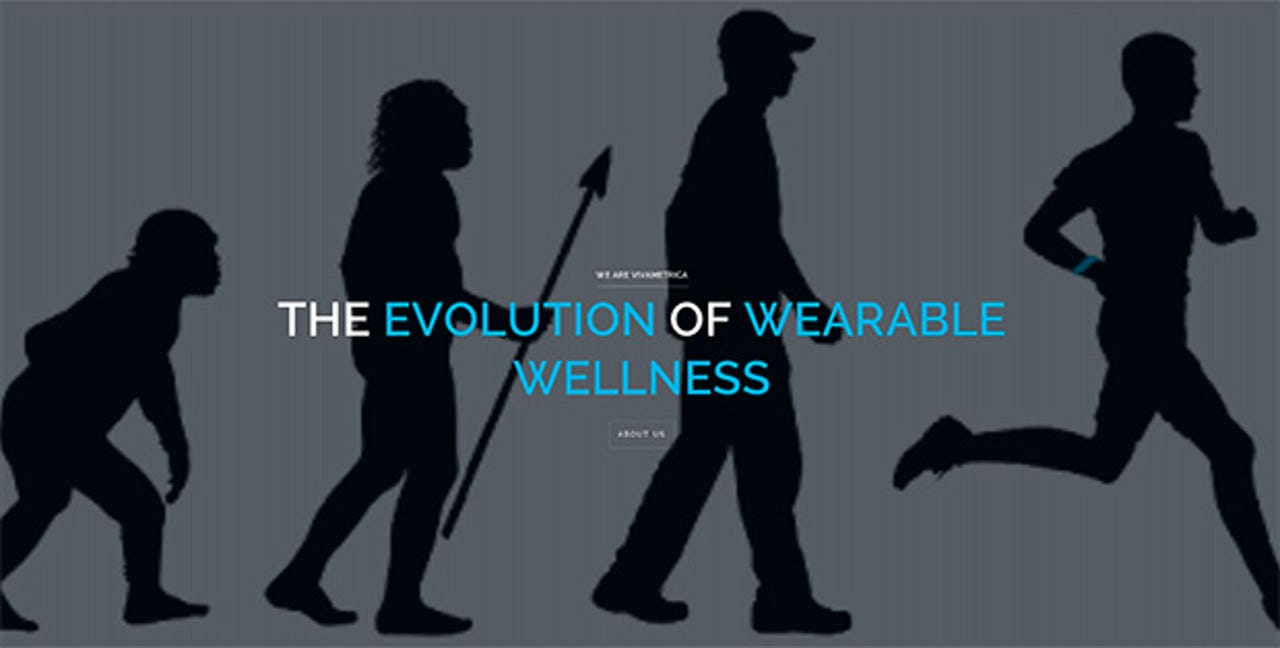Vivametrica unveils open source healthcare analytics platform for wearables


Sensor-laden smartphones and wearable devices are set to generate vast amounts of activity and other health-related data in the coming years. Fitness bands such as the popular Fitbit and Nike Fuelband, smartwatches such as Samsung's Gear series and Apple's recently announced Watch, and their successors, will deliver step counts, heart rate readings and more.
Such devices generally come with companion apps that help to present the data and set exercise targets, but real value will derive from personalised risk assessments for various chronic conditions (such as heart disease, diabetes and back pain) and actionable health targets based on comparative population data.
This is where Canada-based Vivametrica comes in. Building on more than decade of clinical research on the science of exercise, the company's goal, according to founder and CEO Dr Richard Hu, is to "take our research information and apply it as a data analytics platform, bringing information in, in a standardised fashion, making meaningful analysis and providing tools to consumers, to industry and to enterprise".
Hu also says that Vivametrica will "distribute that information — with appropriate security and privacy safeguards — to work as part of further data analyses in an interactive process".
According to Hu, who is also a clinical professor of surgery at the University of Calgary, the accuracy of consumer activity trackers is "better than most people would attribute to these devices" — Vivametrica's research finds correlation coefficients of 0.89-0.99 with 'gold standard' ActiGraph sensors, for example.
"We're also devising a calibration method for each individual monitor, so that if you change devices in the future, your previous data is still usable," he says.
Gathering standardised, calibrated data from the disparate population of smartphones and wearable devices is obviously a key precursor to analysis and meaningful output.
According to Vivametrica president Scott Valentine, the company's platform will support Fitbit (the best-selling fitness band) and Android 4.4, Google Fit, and Google Wear devices by the end of September, when the company will launch a private beta.
By December, when a free consumer SaaS offering will debut, Vivametrica aims to have Apple HealthKit support in place. "That will give us 90 to 95 percent of the market for accelerometry and other monitors as we launch," Valentine says.
Following the consumer SaaS roll-out in December, Vivametrica will introduce a paid-for premium service around the middle of 2015, aimed at enterprise employee health and wellness programs, and insurance and healthcare verticals.
The free service will be available initially in the US, Canada and Australia; the company is also "working very hard to go to market with the UK as well," according to Valentine.
The vital ingredient, he says, is the availability of "public health data sets that contain accelerometry data", which will provide the all-important context for user data analysis.
Benchmark-based lifestyle decisions
So, what will Vivametrica offer the consumer who signs up in December? Those public health data sets are key because the service is based on combining user activity and questionnaire information, and comparing it to the relevant population data.
Then, says Hu, "we can derive a relative risk of disease based upon that information and our developed algorithms. For example, if my activity level and other characteristics are less than average, we can provide a relative risk of cardiac disease; users can then manipulate the activity sliders and see how increasing activity will start to reduce the relative risk of disease."
The ability for users to make lifestyle decisions based on credible benchmarks should make for a more engaging experience, Hu says, preventing wearable devices from recording data to no apparent purpose.
Privacy and security, naturally, are front and centre among Vivametrica's concerns.
"We begin and end with the idea that, since you are — quite literally — the engine that's walking around producing this data, it's yours to decide what to do with," Valentine says. Options will be provided to share health data with family members or with your doctor, should you so wish.
Vivametrica sees opportunities in the growth of more types of sensors (such as home-use blood glucose monitors), and platforms such as Google Fit and Apple HealthKit that expand the data-gathering device population.
According to Valentine, the question is: "How do we best build our platform to be an open architecture that allows the biggest number of devices to connect?"
To this end, the company plans to introduce an SDK and open API so that enterprises and third-party engineers can connect to the platform and access Vivametrica's data sets and algorithms.
Activity, heart rate and blood pressure monitoring are well established, but there's plenty more sensor development to come, according to Hu, including smart contact lenses, new types of pulse monitors, smart fabrics, oxygen sensitivity and sweat analysis.
"I tend to look at these as beneficial to us," he says. "If we have a new sensor and we can bring digital data in, we can add it and analyse it, and if we have enough uptake we have biostatisticians who can derive appropriate algorithms."
Read more on wearables
- Wearables: Fit For Business?
- A history of smartwatches, in pictures
- Apple unveils 'breakthrough' Watch wearable, aimed at fitness market
- Apple Watch: First look at Apple's new wearable device
- Smartwatches and wearables: A chaotic market stuck in the dark ages
- Moto 360 smartwatch powered by a four-year-old processor
- Privacy questions over HealthKit, Watch earn Apple a grilling from Connecticut's attorney general